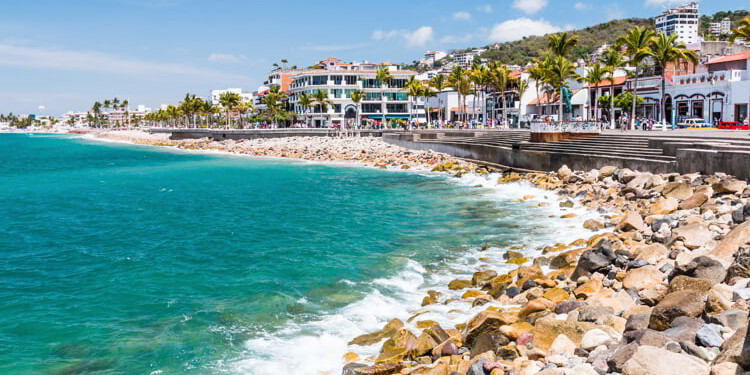The Five Flags theory of diversification was put forward 30 or more years ago by a guy whose name I can’t remember.
Guy’s name doesn’t matter anyway, as it’s a pseudonym. He has written to me a few times over the years to complain about me using his “Five Flags” term. He signs off as Grandpa.
But, I’m not the only one to have borrowed the phrase. It’s used commonly in the offshore world.
For reference, the Five Flags are residency, citizenship, asset protection, banking, and business.
The idea is, you want to “plant a flag” in different countries beyond your home borders—stake a claim, store some of your wealth—so all of your net worth is not tied to one country, should things go bad in that country.
It’s a simple enough idea. But, unfortunately, it is an oversimplification.
The Wrong Way To Diversify Your Portfolio
At my Offshore Wealth Virtual Summit last October, one attendee proudly commented that he was well into his flag-planting and had already taken several key steps toward internationalizing his life.
He had a bank account in Panama… had made real estate investments in Panama… had actually moved to Panama… and was on his way to a Panamanian passport.
Four flags down.
On one hand, great. Congratulations.
On the other… not so fast.
However, while this conference attendee has indeed planted three flags—banking, residency, and assets—with a fourth under way—citizenship—every one of the flags is in the same country.
He hasn’t diversified his life or his finances. He’s simply moved them both from his home country to Panama.
Now, instead of being completely at the mercy of the goings-on in the United States—from its economy and currency to its political situation—he’s in the same vulnerable position in Panama.
Years ago, a real estate investor came up to me at an investment conference to boast that he had diversified his real estate portfolio overseas.
He told me that he had sold all of his U.S. real estate, which had been a sizable portfolio, and bought a bunch of properties in Nicaragua.
This guy hadn’t diversified either. Again, he’d simply moved all of his real estate risk from one country to another. Now he was completely exposed to whatever might come to pass in Nicaragua that could affect his wealth.
Don’t Put All Your Eggs In One Basket
In this case, something big happened.
Daniel Ortega was reelected president in 2007. He has remained in office ever since.
While he hasn’t interfered with personal property rights, as has been a concern all along, or taken any other direct step to threaten foreign investment, his continued presence at the helm of government in this country has scared off both investors and tourists.
Property values and rental returns have suffered.
Of course, if the guy in our story had kept all of his holdings in the United States, he would have been hit hard a year or two after Ortega took office in Nicaragua, so maybe his portfolio was doomed either way.
And that’s precisely my point. Had the guy kept a property or two in the States, bought a property or two in Nicaragua, and bought properties in two or three other countries (he had the budget to accommodate it), then he would have been diversified.
He would have been insulated against the fallout of the 2008 global financial crisis in the United States… as well as from the return of Ortega in Nicaragua.
His real estate assets in those countries would have experienced losses.
But, some of his holdings in other markets could have sailed through unaffected, continuing to generate rental income and perhaps—because every market has its own cycle—enjoying value appreciation way ahead of U.S. and Nicaraguan markets.
Beyond The Five Flags For Diversification
You have good options for diversification beyond the Five Flags.
And, of course, not all of the original Five Flags are relevant to everyone. For example, not everyone has a business offshore… or needs to.
Above all, the most important flag beyond the original five that you should be planting, in my opinion, is to do with investments.
And this sixth flag, if you will, should be spread across as many markets as your budget allows—as the guy from my Nicaragua story learned the hard way.
Never Forget About Taxes
Another important piece of your flag-planting puzzle is to do with taxes.
Most importantly, the tax implications of any move—any investment, business, asset protection strategy, and residency or citizenship choice—should be considered from the start of the planning process.
On the other end of the spectrum, over-diversification is a trap that’s easy to fall into.
So, you have to plant your flags in a way that is manageable and makes sense for your level of income and net worth.
Firstly, don’t open 10 bank accounts in 10 countries with US$5,000 in each one.
Above all, the administration and bank fees outweigh any possible benefit of swinging that far the other direction.
When you find yourself getting to that point—as I have when it comes to my real estate investments—work to bring yourself and your plan back to an equilibrium that makes sense for you.
What all this is really about, as I say, is a strategy that works for your own situation.
All these things… overseas residency, citizenship, asset protection, banking, business, investments, and taxes… they are “keys” that you can use to safely and legally protect what’s yours from the global powers-that-be.
Use the keys to “unlock” and maximize your wealth when the time comes…
“Seven Keys”… I think I just came up with my own theory of offshore diversification.
Grandpa would be proud.
Stay diversified,

Lief Simon
Editor, Offshore Living Letter










